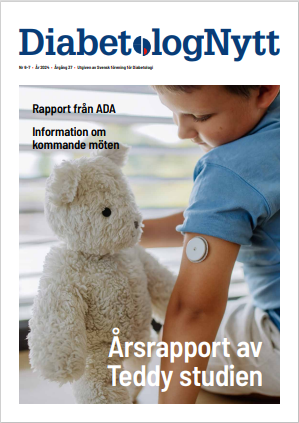The prevalence of primary aldosteronism among adults with type 2 diabetes is relatively low, but those with primary aldosteronism have higher systolic blood pressure and lower potassium levels than those without adrenal dysfunction, according to published findings.
“We did not find any strong indications in this cross-sectional study that aldosterone levels or aldosterone/renin ratio are any strong risk factors for diabetic complications, but it cannot be excluded that some associations may exist that could potentially be detected in a long-time prospective study.
Hypertension and hypokalemia were related to primary aldosteronism in this unselected cohort of persons with type 2 diabetes,” Marcus Lind, MD, PhD, of the Diabetes Outpatient Clinic at Uddevalla Hospital in Sweden, told Endocrine Today.
Lind and colleagues evaluated data from 578 adults (mean age, 65.8 years; 38.7% women) with type 2 diabetes (mean diabetes duration, 10 years) to determine the prevalence of primary aldosteronism among them.
Overall, 27 participants who were taking mineralocorticoid receptor agonists and potassium-sparing diuretics were excluded.
Five participants had confirmed primary aldosteronism, four had bilateral disease and one had unilateral disease after adrenal venous sampling. All participants with primary aldosteronism were men and were taking one or more antihypertensive medications.
Compared with participants without primary aldosteronism, participants with primary aldosteronism had higher systolic BP (P = .032) and lower potassium levels (P = .027). The number of BP medications, diabetes duration, metabolic control, BMI or daily insulin needs did not differ between participants with and without primary aldosteronism.
“The findings do not imply that general screening may be meaningful regarding primary aldosteronism in persons with type 2 diabetes. One should be alert for considering screening in patients with hypertension, advanced treatment for hypertension or hyperkalemia,” Lind said. “Aldosterone levels or aldosterone/renin ratio should not be used as an indicator for risk of diabetic complications in persons with type 2 diabetes based on our findings
AUTHORS:
Tancredi M, Johansson G, Eliasson B, Eggertsen R, Lindblad U, Dahlqvist S, Imberg H, Lind M.
Eidtorial
The manuscript from Sweden by Tancredi and colleagues (”prevalence of primary aldosteronism among patients with type 2 diabetes”) would be better titled, ”primary aldosteronism in patients with type 2 diabetes,” in that their figures for prevalence (whole cohort 0.93%, patients on antihypertensives 1.4%) are the irreducible minimum given the cutoffs used and the very high number of exclusions.
The aldosterone/renin ratio cutoff used is classically Northern European (that is, strict) and likely to miss less florid patients; even though many patients were normotensive, a screening result of 6.9% is low by international standards. The five patients in whom primary aldosteronism was finally confirmed had plasma [K+] values averaging 3.8 mmol/L, consistent with this. Also affecting possible prevalence was screening with patients (understandably) maintained on their full drug therapy, the exclusion of 27 patients on amlodipine/mineralocorticoid receptor antagonist therapy, and 17 of the 38 aldosterone/renin ratio-positive patients who did not undergo a confirmatory saline suppression test.
That said, the authors make a good case that primary aldosteronism is not more than usually common in type 2 diabetes, and that the results of previous studies, on patients with type 2 diabetes and resistant hypertension, which they cite and discuss, have a prevalence similar to that in nondiabetic patients with resistant hypertension. Finally, their claim, ”Therefore, we believe that our finding of low prevalence of primary aldosteronism is not due to a selection bias,” is true for recruitment but not for intra-study exclusions/omissions.
John W. Funder, MD, PhD, FRACP, FRCP
Senior Fellow, Hudson Institute of Medical Research
Professor, Department of Medicine
Monash University, Australia
From www.healio.com
Nyhetsinfo
www red DiabetologNytt





